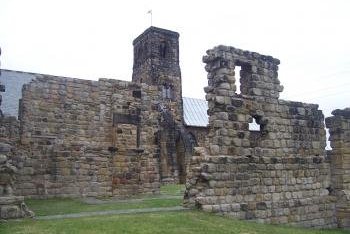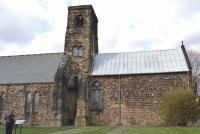United Kingdom
The Twin Monastery of Wearmouth Jarrow
These two churches and associated ruins are the remains of an important monastery in the North East of England, situated in the present day cities of Jarrow and Sunderland. Founded in the 7th century the twin monastery of Wearmouth-Jarrow was one of the most important in Northern Europe, being a centre of Anglo Saxon learning and was the base of the renowned scholar Saint Bede the Venerable, who authored one of the earliest histories of England. The monastery was sacked by vikings in the 9th century and today these two nominated churches and associated ruins are a testament to medieval monastic scholarship.
Site Info
Official Information
- Full Name
- The Twin Monastery of Wearmouth Jarrow (ID: 5681)
- Country
- United Kingdom
- Status
-
Removed from tentative list 2023
Site history
History of The Twin Monastery of Wearmouth Jarrow
- 2023: Removed from Tentative List
- Removed from tentative list
- 2012: Added to Tentative List
- Added to tentative list
- 2012: Requested by State Party to not be examined
- .
- Type
- None
- Criteria
Links
All Links
No links available.
Community Information
Travel Information
Recent Connections
News
No news.
Recent Visitors
Visitors of The Twin Monastery of Wearmouth Jarrow
Community Reviews
Show full reviewsJakob F.
The Twin Monastery of Wearmouth Jarrow by Jakob Frenzel
The Twin Monastery of Wearmouth Jarrow (Removed from tentative list)

March 2018 - After the night in Newcastle we vsisted Jarrow early in the morning. It is locate in a smal park, next to highways and a playground. Not worthy for a world heritage site. But the OUV of this site I cannot rate anyway. I dont know that much about architectural history, but there is no buffer zone, and the experience when visiting is modest.
Keep reading 0 commentsIan Cade
The Twin Monastery of Wearmouth Jarrow
The Twin Monastery of Wearmouth Jarrow (Removed from tentative list)

On the long drive back from Hadrian's Wall I decided to make a quick detour to have a view of the UK's next prospective WHS. So on a very quiet Sunday morning I dove through the suburban streets of South Tyneside to arrive at St Paul's church in Jarrow, just after that day's service had started. This stopped me from exploring the interior, however I had really come to see what was outside.
The church itself is small, and pretty unremarkable if I am being honest, looking like many other churches across the country. It is set in a pleasant little park just away from the Tyne tunnel and industrial docklands beyond. The ruins of the monastery were actually a little more substantial than I had imagined they would be with several walls still standing. There are explanatory boards dotted around showing the evolution and importance of the remains, but on the whole I wouldn't say that it was a particularly remarkable place to visit.
I didn't make it down to St Peter's church in Sunderland which is the "Monkwearmouth" part of this site, preferring instead the more classical joys of nearby Durham. I must admit having looked at the pictures of the site I doubt I would go too far out of my way to visit, unless I had other reasons to be in Sunderland.
The importance of the two churches in this nomination is that they are the remnants of the twin monastery that once stood here. The …
Keep reading 0 commentsSolivagant
The Twin Monastery of Wearmouth Jarrow
The Twin Monastery of Wearmouth Jarrow (Removed from tentative list)

If UK’s nomination for 2012 does gain inscription many people who go out of their way to see it might be surprised at how little is “on view”! It consists of the sites of twin monasteries set up in 674 and 685 respectively – about 8 miles apart, near present day Sunderland. The founder Bishop Benedict “brought workmen from Francia to build these churches, the first ecclesiastical structures in Britain built of stone, and furnished (them) with glass windows, pictures, service books and the library he had collected on his travels. Window glass being unusual in England at the time, Benedict imported glassmakers from Francia, who established a workshop at the Monkwearmouth site” (Wiki) , They flourished until the late 8th and 9th centuries when Viking raids took place. During this time, with their easy access to the North Sea, they played a major part in the exchange of knowledge and ideas across Christian Europe. They were finally destroyed as working institutions by the Danes around 860 although they were resurrected in smaller ways during Norman times.
At Monkwearmouth you will see a largely 19th century church of St Peter which incorporates a tower, a few walls and a main door from the original Anglo Saxon church together with additions from c1000 and 14th C. It is set in a grassy area on which the outlines at ground level of the original monastery buildings are marked out – the below ground aspects of the site are considered significant even though …
Keep reading 0 comments